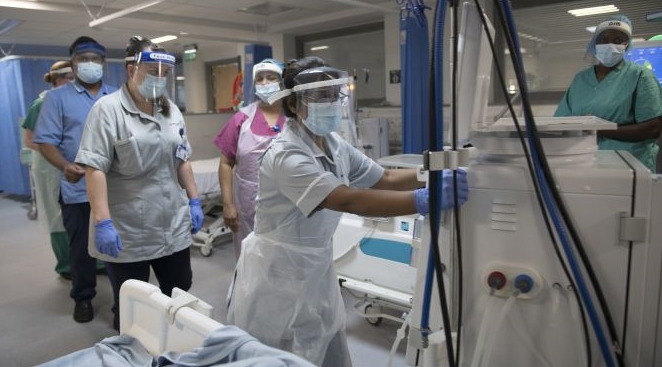
It’s two years (9 February) since the Royal Free London NHS Foundation Trust first started admitting patients with COVID-19.
Since then, Royal Free London (RFL) staff have cared for over 7,400 patients with COVID-19 and have given over 54,000 COVID-19 jabs to protect healthcare workers, patients and members of the public at RFL hospital sites.
The Royal Free Charity has also stood shoulder to shoulder with the trust supporting staff, setting up an emergency fund and managing the incredibly generous donations of food and essential items from local communities. They continue to offer long term help, including vital funding for COVID-19 research and staff wellbeing.
To mark the two year milestone RFL staff reflect on their experiences in a series of photos taken during the pandemic. From a mortuary technician, to a Royal Free Charity volunteer, and an infectious disease consultant, the following images feature different voices across the trust and capture just how extraordinary the past two years have been and how resilient the NHS family is.
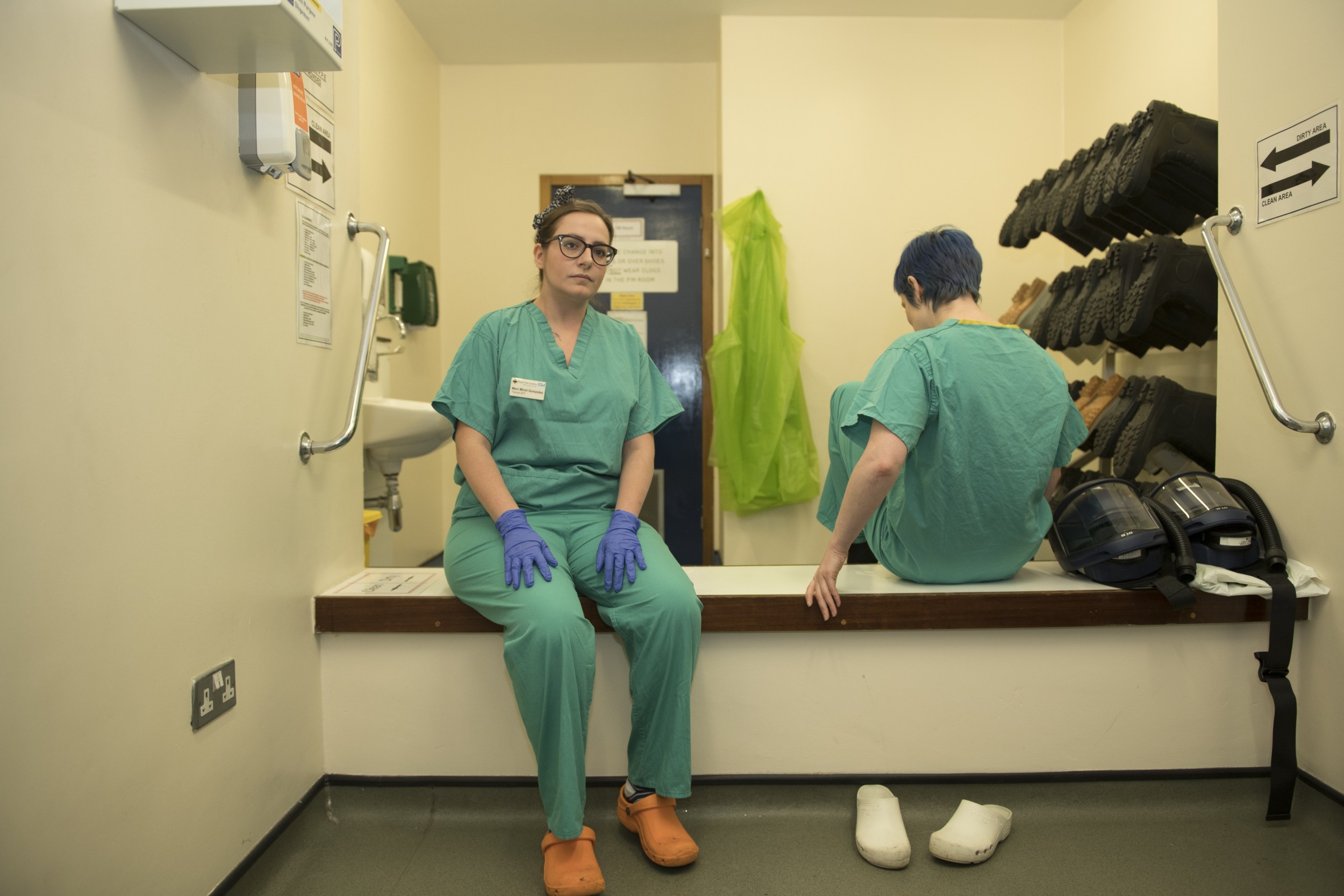
Meritxell Miret, anatomical pathology technologist (left) at the Royal Free Hospital. (Photo taken before face masks were made mandatory in NHS hospitals).
"I think the pandemic has affected me in ways I still haven’t processed yet but I know I did my best. Early on I set up the ability for families to view their deceased loved ones remotely when we weren’t allowing visiting and that is something we continue to offer. I just couldn’t bear the thought that someone might have come to hospital feeling relatively well, take a turn for the worse and their family would never have the opportunity to see them again.
“I remember how tired my colleague and I were, both physically and mentally. Sometimes I didn’t finish till 2am in the morning, only to return at 8am. We were coping with a volume of patients that we’d simply never experienced before.”
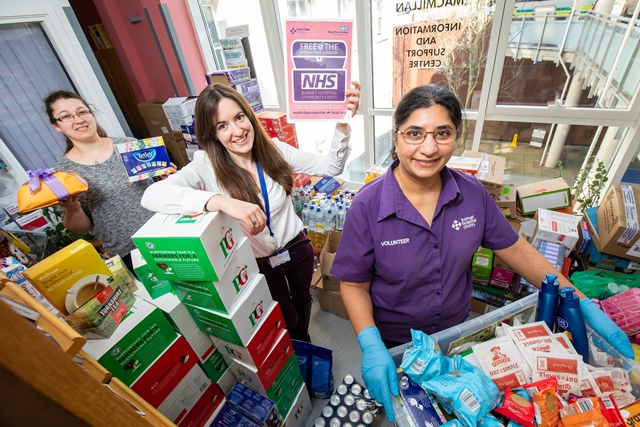
Rashmi Malde, Royal Free Charity volunteer at Barnet Hospital (pictured on right). (Photo taken before face masks were made mandatory in NHS hospitals).
“The bravery, courage and sacrifice of all the frontline NHS staff and key workers inspired me to volunteer for the Royal Free Charity. I helped to make up boxes of goodies and care packages and deliver these to the wards. My reward was seeing huge smiles lighting up the faces of the NHS staff and their deep appreciation of the kindness and generosity of all the people who had donated to the charity during such uncertain and challenging times.”
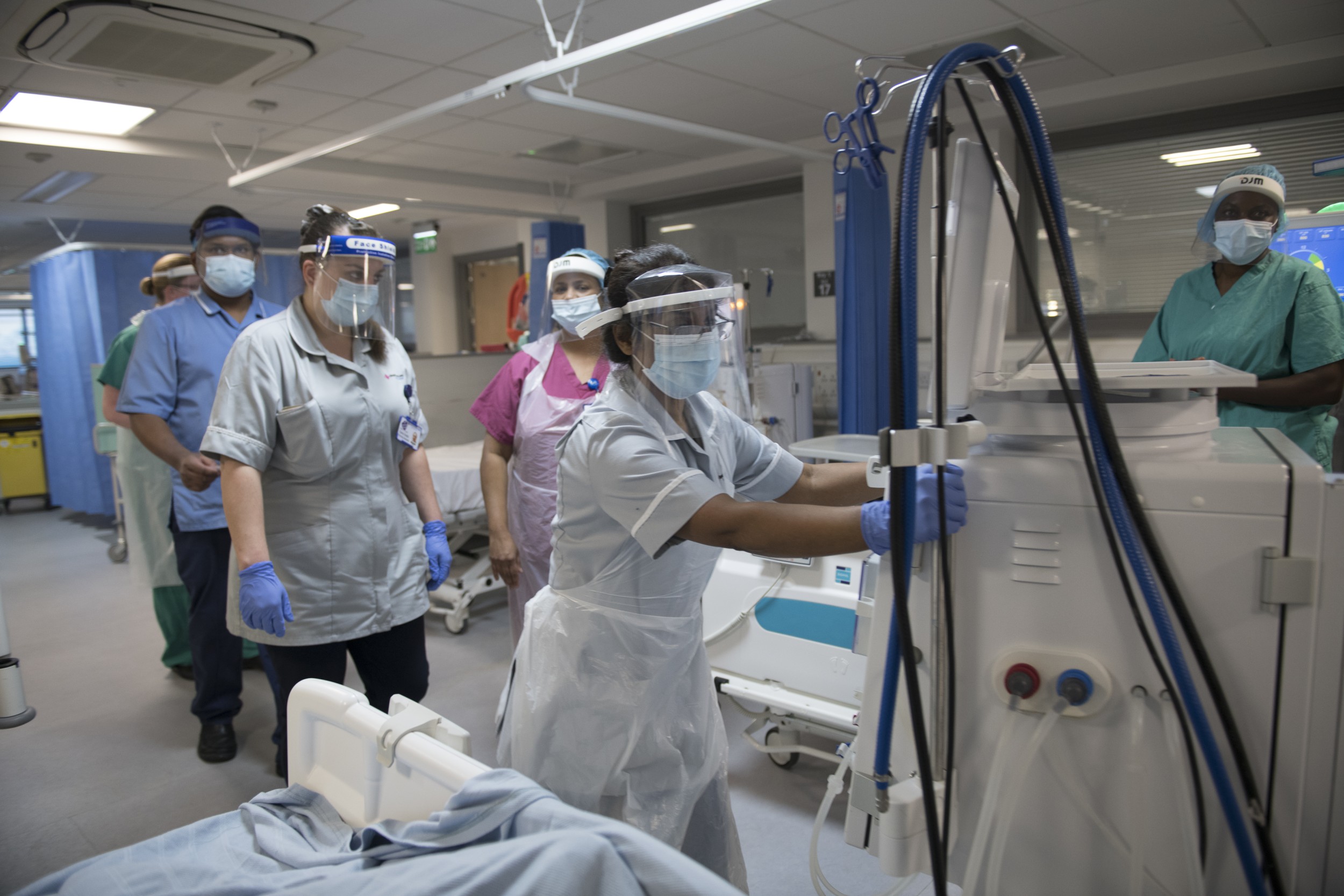
Rosamma Babu, healthcare practitioner at Tottenham Hale dialysis unit (pushing dialysis machine).
“I joined the NHS just before COVID-19 – before that I’d been a private carer. I think it’s probably good that none of us knew how tough the pandemic would be and how long it has gone on for. Our patients are some of the most vulnerable and many lost their lives. I remember all their faces, even though I was relatively new you do build up a bond as the caregiver very quickly. It’s still not easy for me but I have to be here for other patients. When I’ve got time off from work I take pleasure in going for a walk – even if it’s just a bit of window-shopping. The fresh air relaxes me.”

Toluleyi Sobande, senior clinical research nurse at the Royal Free London Hospital, during the Novavax COVID-19 vaccine trials.
“The pandemic hit us with a lot of uncertainty but at the very heart of finding a solution is research. The delivery team worked together to develop a vaccine to give us immunity. This was a stressful time, but luckily we had a fantastic research team. In my view, every one of the four teams and each volunteer that took part in this study deserve an award.
“This was the first time I have ever witnessed group of people coming together from different specialities at such a short notice to produce outstanding work in such a highly efficient way. For me, this experience helped reduce the stress of upsetting daily news and I feel extremely blessed to have taken part.”
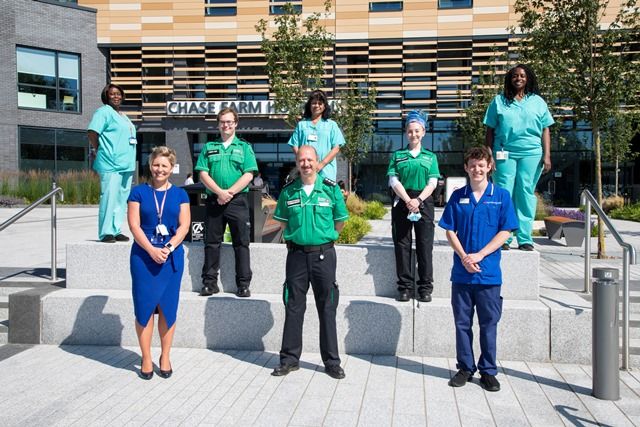
Tom Nettleton, emergency care practitioner at Chase Farm Hospital (pictured bottom-right), with St John Ambulance volunteers and CFH staff.
“During the first wave of COVID-19, everything was so new and unusual. At Chase Farm Hospital, many staff were redeployed and there was an entire shift of our workload. In June 2020, we started working with St John Ambulance volunteers to deliver home testing for vulnerable and isolated patients who were suspected to have COVID-19 and were in need of life-saving support. This scheme was the first in the country and it was amazing how the team supported us and gave up their time.”
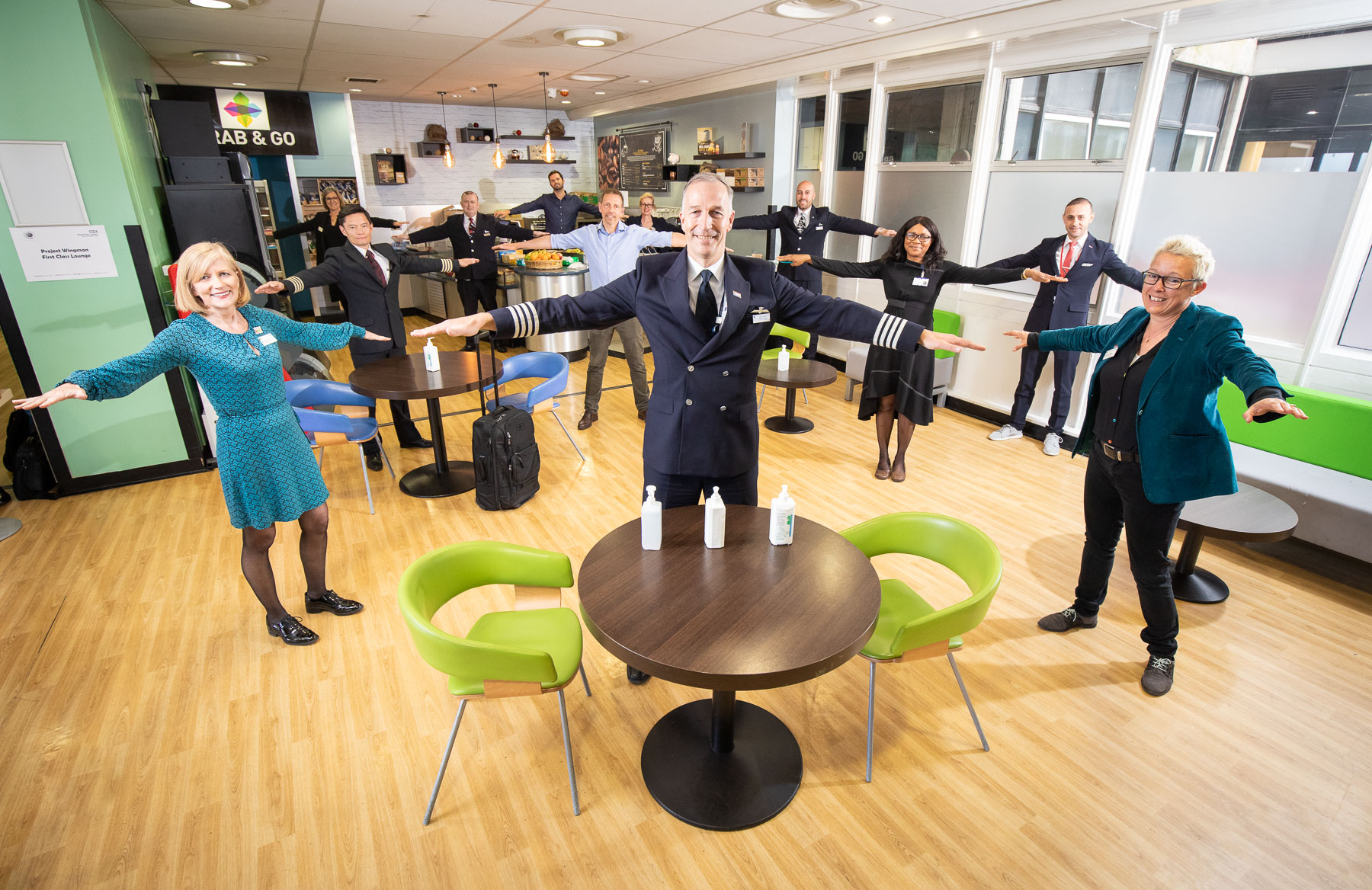
Caroline Clarke, Royal Free London group chief executive (pictured bottom-right), with the Project Wingman team at the Royal Free Hospital. (Photo taken before face masks were made mandatory in NHS hospitals).
“Project Wingman saw furloughed cabin crew and pilots volunteer their time to provide wellbeing support for NHS staff. This was a fantastic initiative, and just one example of the outpouring of support we have seen for our staff and colleagues across the NHS in the last two years. Our response to the challenge of COVID-19 has highlighted how dedicated and hardworking our staff truly are. I am so very proud of each and every one of them."
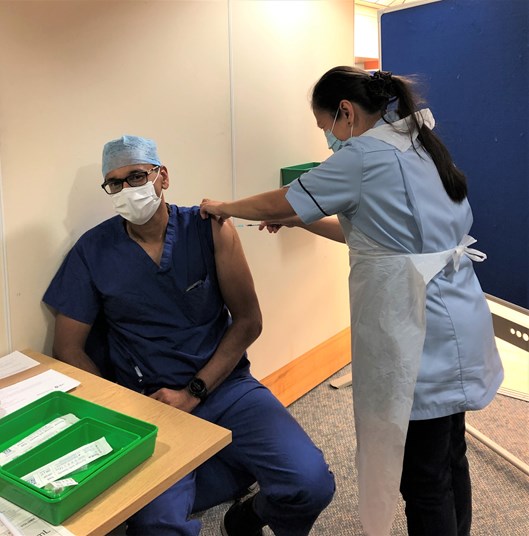
Nilesh Sojitra (seated), consultant plastic surgeon at the Royal Free Hospital receiving his COVID-19 booster jab.
“I was amongst the first group to receive my COVID-19 booster vaccine and flu jab in September 2021. Earlier on in the pandemic, I was also part of the Royal Free London vaccination team. We can help all get to the end of the pandemic by getting our vaccinations.”
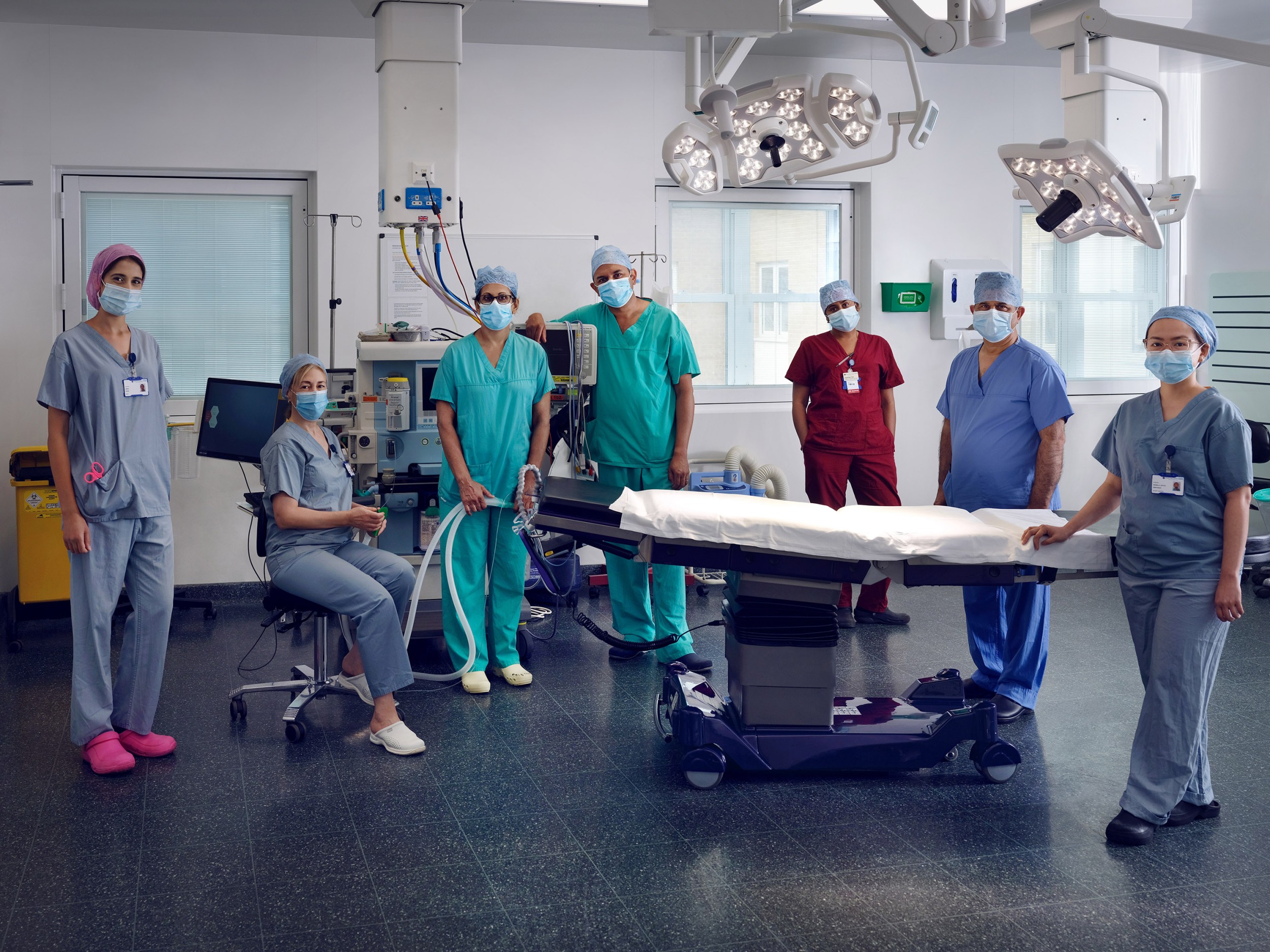
Muhammad Sahid, consultant trauma and orthopaedic surgeon at Barnet Hospital (pictured second from right). A winning image in the Portrait of Britain 2021 photography competition – courtesy of Frederic Aranda.
“The pandemic was something we had never experienced before. We all had to adapt to the new way of working and many of us were deployed to unfamiliar environments which was challenging. This was further compounded by the fact that we were all vulnerable to this horrible disease and could take it to our loved ones at home. I observed unbelievable dedication among the frontline staff to do everything in their power to save their patients. I also observed the love of the general public towards the NHS. Although I hope that the pandemic will be over soon, these memories will stay with us to the last days of our lives.”
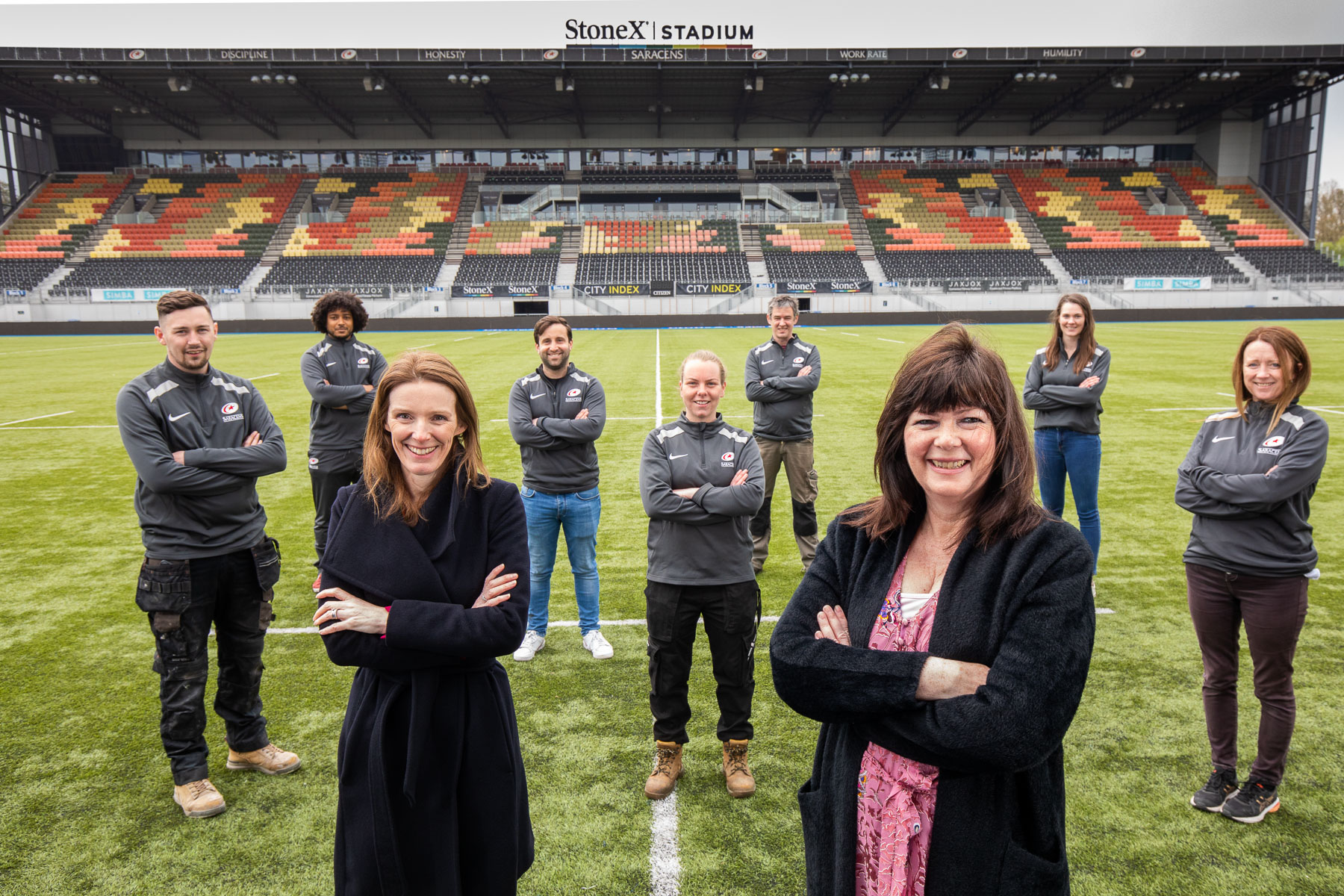
Julie Hamilton (pictured front left), Royal Free London group chief nurse, at the vaccination centre at Saracens' StoneX Stadium.
“I’m incredibly proud of everyone’s efforts over the past two years to protect our communities from COVID-19. In total, almost 90,000 vaccinations were delivered to members of the public at the RFL-run vaccination centre at Saracens’ StoneX Stadium. Our vaccination teams have worked so hard to ensure a seamless experience for our staff and patients in the clinics and administer the jabs to as many people as they can. Our clinics are still open offering both the COVID-19 and flu vaccination and I would urge you to please get your COVID-19 and flu vaccines to boost your immunity."
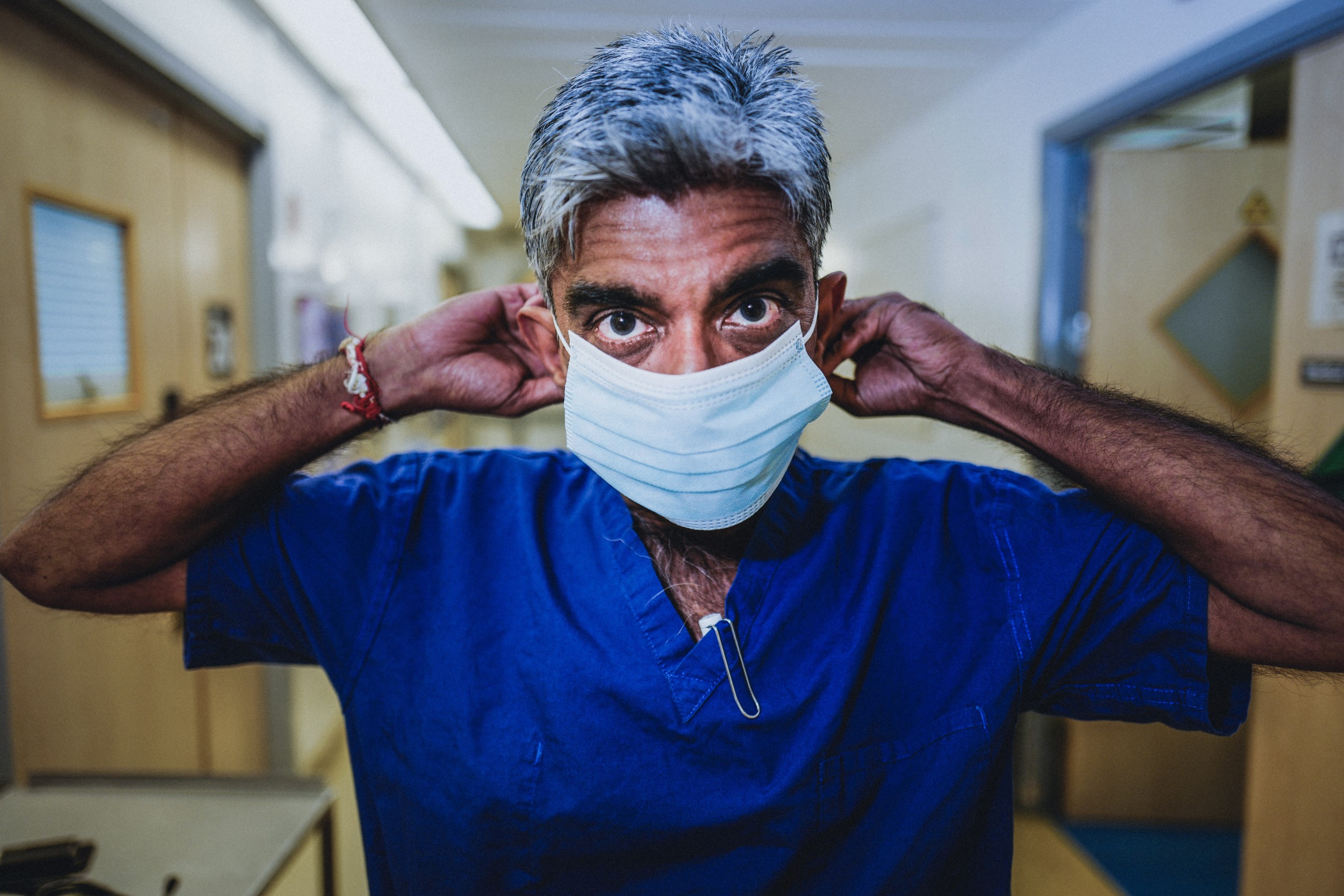
Sanjay Bhagani, Royal Free Hospital infectious disease consultant, pictured during the filming of BBC Hospital. (Photo courtesy of Label1).
“At the beginning of the first wave, we spent a lot of time and energy getting to grips with the virus. As we moved into the first lockdown and the hospital went into ‘pandemic mode’, it was heart-warming to see healthcare professionals from different specialities come together as one huge team with the single aim of trying to save as many lives as possible.
“Over subsequent waves, the situation has evolved and we are working hard to address other illnesses and delayed operations. Many of us are emotionally and physically exhausted."
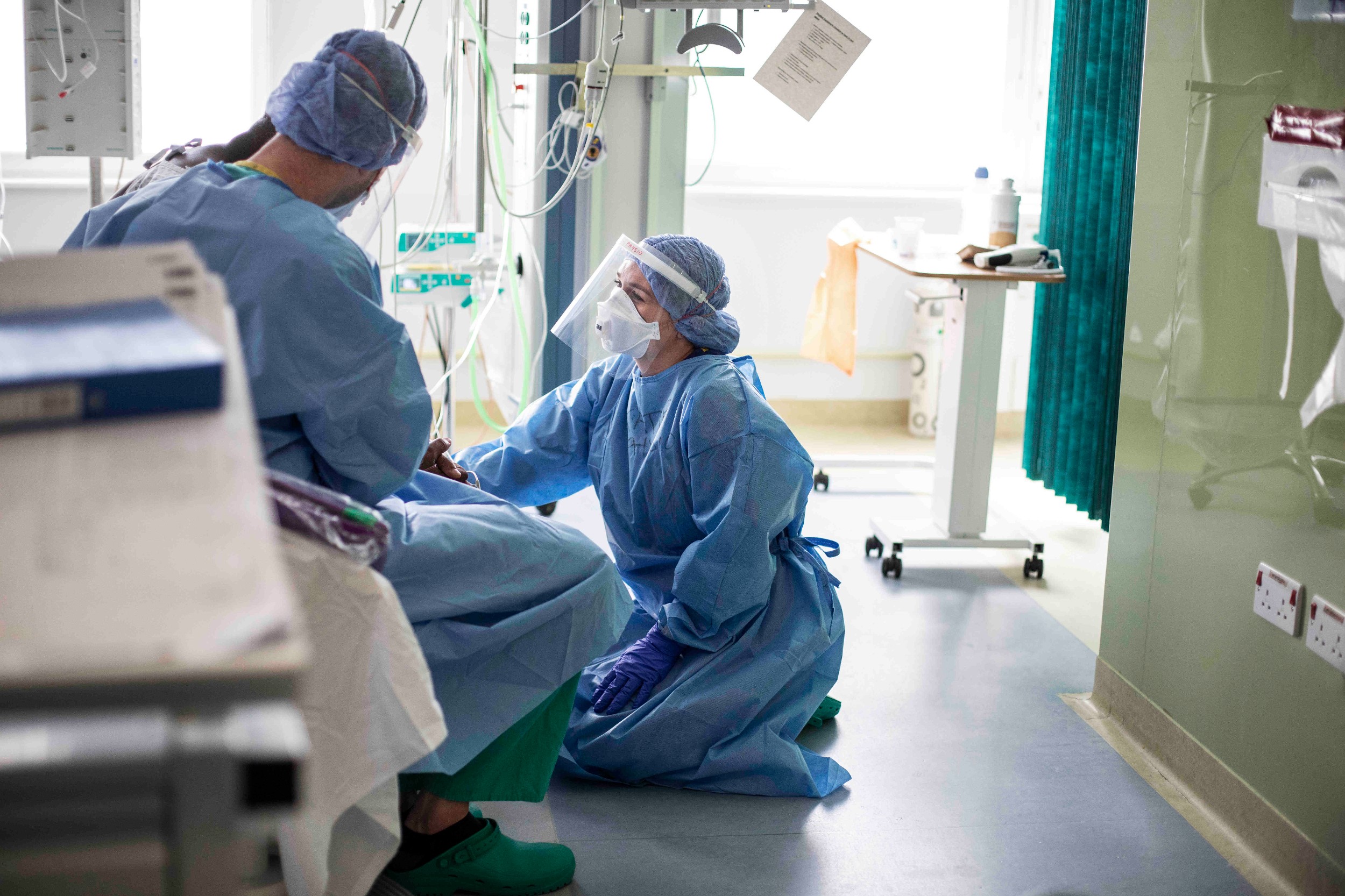
Katie Wood (pictured kneeling), previously a rotational ICU physiotherapist, now works in the Royal Free Hospital outpatient physiotherapy department. (Photo courtesty of The Times Magazine).
“During the first wave of COVID-19, everything was really new to us all. We worked as a multidisciplinary team to try out new methods of care and this collaboration was the best thing to come out of a draining, high-pressured time.
“For me, this photo captures a glimmer of hope and connection in a scary situation. This was the first time the patient had sat at the end of his bed after being ventilated. You can’t see too well under all the PPE, but I was smiling and trying hard to be a friendly face. So many people would wake up in ICU in a state of delirium and fear, and we were doing all we could to get them back on their feet and create a positive environment for them. I’m now working in the outpatient physiotherapy department, where I recently continued treating someone I had cared for in ICU with COVID-19 from the same time as this picture. It’s really encouraging and uplifting to see and hear how much therapies contributed on her journey to recovery.”
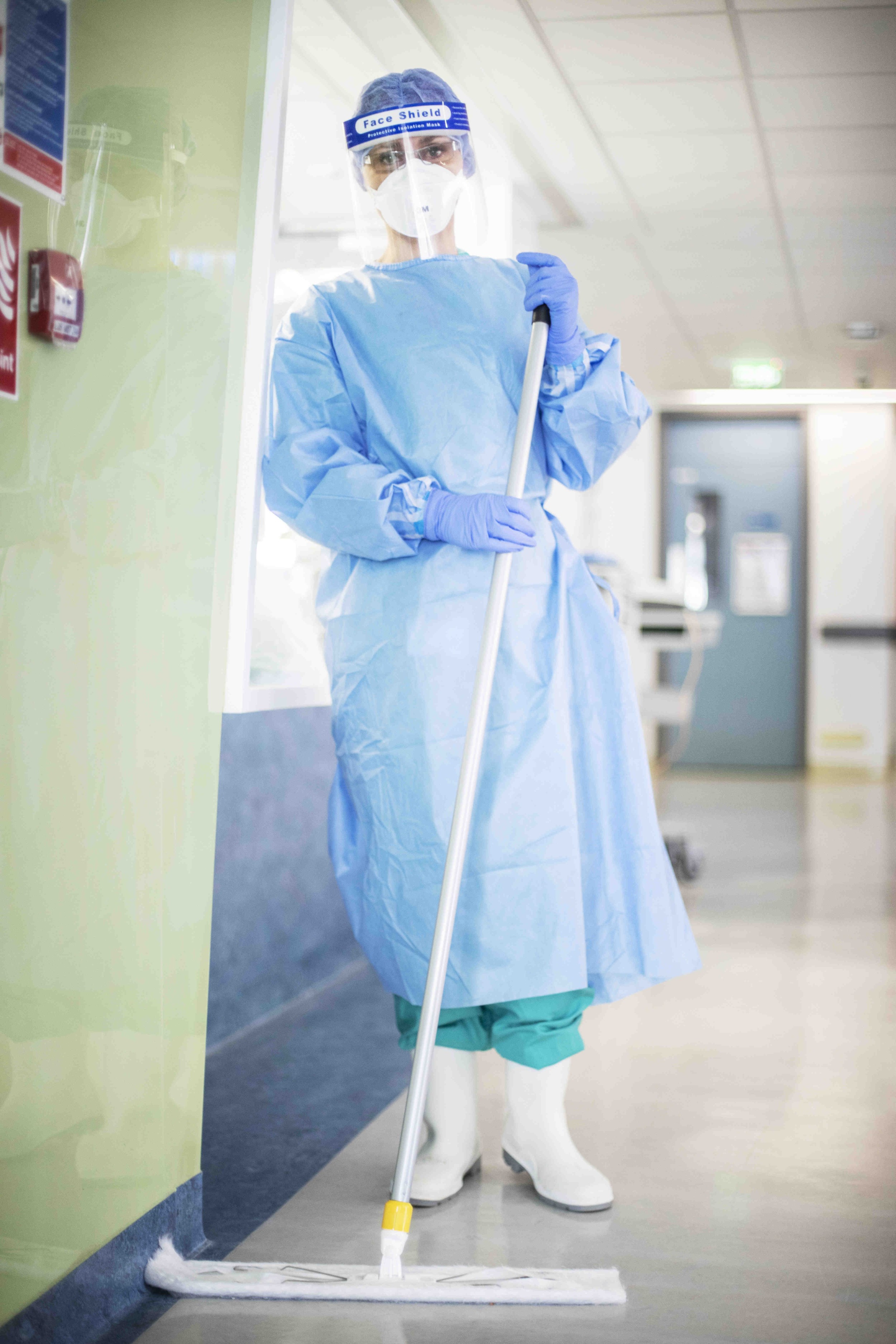
Mirela Cristea, intensive care unit (ICU) domestic staff at the Royal Free Hospital. (Photo courtesy of The Times Magazine).
“I have been at the Royal Free Hospital for five years and I work in the ICU department. This picture was taken in 2020 during the first wave of the pandemic – it was the hardest stage of my life. I have never seen anything like it and it is a memory that will stay with me forever. The experience was both mentally and physically draining, but the appreciation that was shown for all roles across the NHS helped me during this time.”
 Translate
Translate